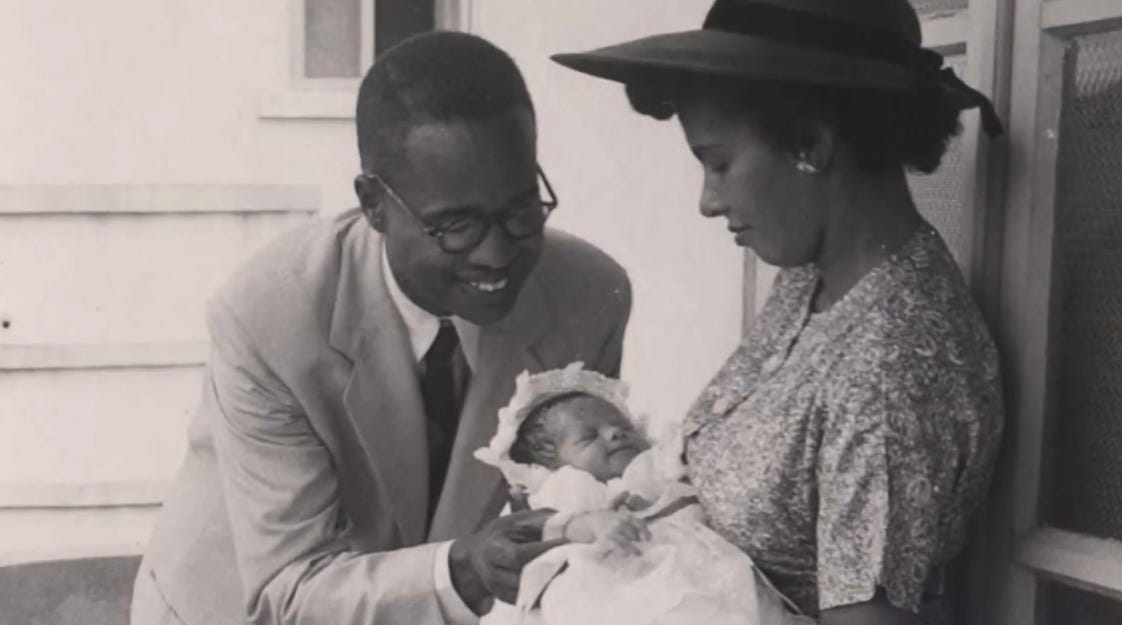Legacies & Lessons from a Foreign Service Childhood
Previewing upcoming conversations with Dorothy Davis and Melanne Verveer
Born in Liberia, Dorothy Davis attended a Catholic elementary school in Tunisia and came home to a baby sitter who spoke only Arabic. In first grade, her mother enrolled her in a private elementary school in New Jersey but when the administration realized the family was Black, they rescinded the placement. Dorothy’s parents sued and won, and Dorothy integrated the school. In sixth grade, her parents moved to Washington, D.C., where she became the first Black girl to attend Sidwell Friends (the same age at which, decades later, Malia Obama would enroll in the school). She attended a private high school in Switzerland and spent several of her teenage summers in Lagos, during Nigeria’s civil war. Her life was expansive and exceptional, as friends of her father — including his mentor, Langston Hughes — were frequent houseguests. But Dorothy knew no different. If anything, it would not be until adulthood when the full weight and delight of her experiences and the extraordinary life of her “strict but visionary” father, Griffith Davis and mother, Muriel Corrin Davis, would come into focus. A talented, groundbreaking photographer, journalist, filmmaker, and diplomat, “Griff,” as he was known, lived a life like few others. And while now Dorothy is the custodian and champion of her father’s legacy, in our conversation, she also reflects at length on the impact of those more typical childhood rights of passage. Teenage rebellion, for example, meant eschewing the U.S. Foreign Service in favor of the joining … the United Nations.
Below is a short excerpt. Paid subscribers will be able to read the entire conversation, which will be sent in a newsletter this Friday.
When and how did you first know that you would be at home in the world?
I don’t think I ever thought I wouldn’t be.
I was born into the international world because my parents were in Liberia as pioneering African-Americans in the Foreign Service. I had no concept of what America was or what the restraints were on African-Americans, period. I was born into it and then had to learn backwards how the world really operates. So it’s really more: when did I learn that my international perspective was not everyone’s perspective?
Tell me about your dad as a dad.
Well, I knew nothing about all he’d already done with his life, let’s just start with that. He wasn’t one to tell you those stories. He was very humble. Maybe a little detail would pop up related to another story, but it was always ‘no big deal’ [laughs].
I only knew his diplomat side, right? That’s what I grew up with, and I would hear these other names of people but not think anything of it. He’d talk about Ebony and we would meet different people who worked for Ebony, like Era Bell Thompson, who was the international editor. She would visit us in Nigeria, and I’d think, ‘I like Era Bell,’ but I didn’t really know or care what she did. Then there was also Lerone Bennett, who my dad brought to Ebony because they were at Morehouse together. He became a famous historian, but I didn’t really know all that at the time. These were household names, but they had no relevance other than that they were dad’s friends. And that also included Langston Hughes. I didn’t know who he was until I read his obituary in 1967.
So he was understated as was my mom. She didn’t go around touting names either, she just treated them as normal people. My dad was strict but he was a visionary because he was aimed toward our future. So everything that I see now that he was doing in terms of constructing our lives was aimed toward that future. The same with my mom, they were partners.
For instance, when you’re in the Foreign Service or you are a Foreign Service family, it is up to your parents to determine how you look at the country in which you are living. You can have an attitude like ‘America is better than any other country, including the one we’re in.’ That’s one way of looking at it. Or you can have the attitude of ‘if I wanted you to do hang out with Americans, I would have left you in the U.S., so I want you to mingle with whoever is in this country we’re in.’ That was our family’s preference. There was no barrier and there was no assumption that America was better than whatever country we were in, at least that wasn’t dictated inside the household.
In a conversation coming early next week, Ambassador Melanne Verveer and I talk about her own childhood and the unexpected impact of the afternoons she’d spend at the United Nations.
I went to boarding school in New York and because a lot of the kids were local, they went home more often. I would find myself within an hour from the city, and I would go to the UN. I loved going and I would sit there and listen to all of these debates. I didn’t even know where some of the countries were but there was something about being catapulted into different places around the world that made me want to be there and be a part of it in some way. It really had a seminal impact on me.
Become a paid subscriber today in order to read these upcoming conversations.
Know a Woman in Foreign Policy Who Should Join our Conversation?
Share in the comments below or email me at jennifer.koons@protonmail.com.






